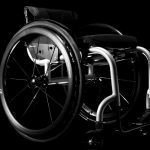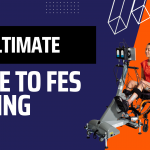
When it comes to active-user wheelchairs, one of the most sought-after features is lightweight construction.
A lightweight wheelchair is often seen as the ideal choice for those who require a wheelchair, as it is undoubtedly easier to manoeuvre, transport and lift. However, many people make the mistake of assuming that there is a ‘best’ lightweight wheelchair that will suit everyone. In reality, the needs of each individual vary, and there is no one-size-fits-all solution. In this short article, we’ll explore why the concept of a ‘best’ lightweight wheelchair is flawed and why it’s important to consider individual needs.
Firstly, let’s consider what makes a lightweight wheelchair ‘best’ for one person versus another. A wheelchair-user who has been in a wheelchair for some time, may decide to purchase a fully-welded wheelchair (such as the GTM Endeavour) as they know exactly how they want to sit in their wheelchair. However, a less experienced wheelchair-user would benefit from some level of adjustability with their chair (such as the GTM Mustang). This adjustability will add weight to the overall chair, but the added convenience of adjustability far outweighs the additional weight for this user. Therefore, it’s important to identify your unique needs and preferences before deciding on a lightweight wheelchair.
Furthermore, the phrase ‘best’ implies that there is a clear winner, but this is not necessarily the case. There are many different lightweight wheelchair models on the market, each with its own strengths and weaknesses. For example, a folding lightweight wheelchair may be ideal for someone who would like to transport their wheelchair in a roof box, but it may not be as sturdy as a rigid frame wheelchair making it less suitable for a user who wants to pair the wheelchair with an off-road power attachment like the Batec Scrambler 2.
Another important consideration when choosing a lightweight wheelchair is the level of support required. Someone with a high-level spinal cord injury or a chronic condition may require more support than someone who has a lower-level injury or an ambulatory wheelchair user. Therefore, the style of lightweight wheelchair that would be considered ‘best’ for each individual will vary significantly.
It’s also worth noting that personal preferences can play a role in determining the best lightweight wheelchair for each individual. Some people may prefer a particular brand or style, while others may prioritize certain features such as adjustable footrests or armrests. The level of customization available in lightweight wheelchairs also means that users can choose a chair that is tailored to their unique needs and preferences.
In summary, the idea of a ‘best’ lightweight wheelchair is flawed because the needs of each individual vary greatly. There are many factors that can impact the suitability of a lightweight wheelchair, including level of support required, weight capacity, seat size, and personal preferences. Therefore, it’s important to identify your unique needs and preferences before deciding on a lightweight wheelchair. It’s also worth considering multiple options and seeking advice from a healthcare professional or mobility specialist to ensure that you find the best lightweight wheelchair for you.
At Cyclone Mobility,we always encourage our clients to find a balance between weight, durability and comfort. Prioritising any one of these over the others will result in a wheelchair that fails to meet your overall needs.
If you have any questions about finding the perfect wheelchair for you, feel free to send me a message using the form below.






Recent Comments